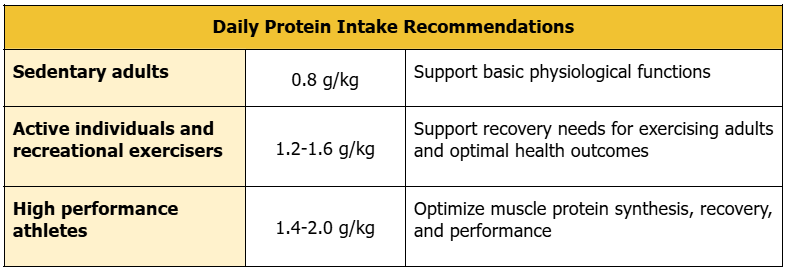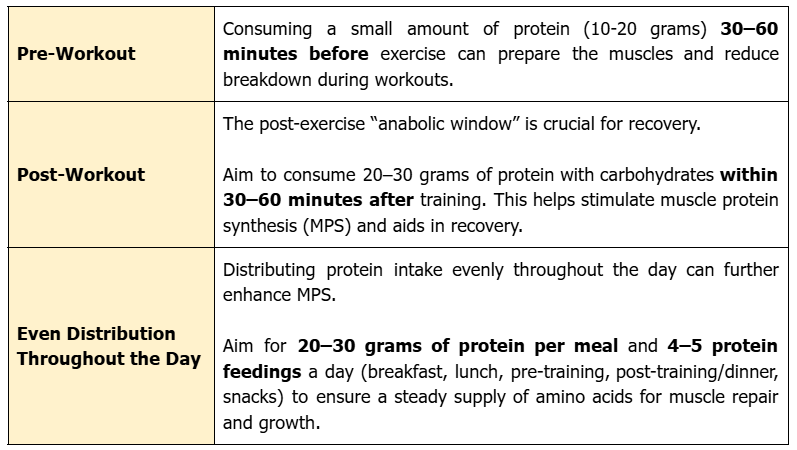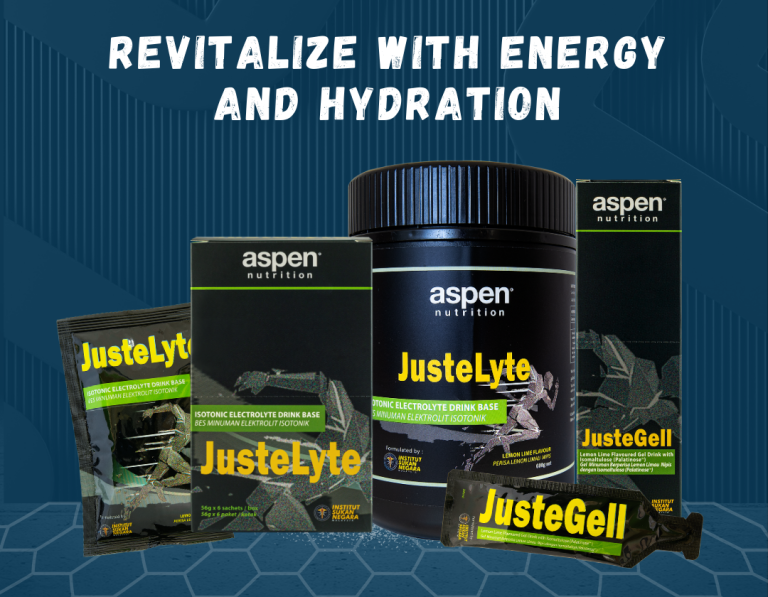A Guide to Protein & Supplementation in Exercise & Sports.
Those starting an exercise routine often discuss protein as a crucial nutrient for a more effective training outcome. But what exactly makes protein so important? Understanding its role can be overwhelming, especially with the information available.
This guide simplifies the essentials of protein to support your exercising body. You will better understand why it matters, how it supports exercise and sports, and how to effectively include it in your diet.
What is protein?
Protein is made up of amino acids, which are building blocks to build and maintain tissues. There are 9 essential amino acids (EAA), which can only be obtained through food.
Proteins can be divided into 2 groups based on their amino acid profile:
- Complete proteins: Considered high-quality proteins because they contain all nine EAAs. You can find complete protein in animal sources and plant sources like quinoa and soy. These food sources have a high biological value, indicating that a greater proportion of the protein can be utilized by the body.
2. Incomplete proteins: May lack one or more EAAs. These are typically found in plant sources like grains, nuts, and vegetables. Vegetarian athletes may require careful dietary planning to ensure that they receive all the required amino acids to support higher protein demands. Therefore, combining different plant sources, such as beans and rice, can form a complete protein profile for vegetarians.
The importance of protein.
Active individuals require more protein than sedentary individuals due to increased muscle breakdown and repair process associated with the higher intensity activity.
Here’s how protein supports an active person:
1. Muscle Repair and Growth
Protein is essential for repairing the small muscle tears that occur during exercise. When consumed post-workout, protein supplies amino acids that aid in muscle protein synthesis (MPS), which drives muscle repair and growth. This process is vital, as it supports increased muscle mass, strength, and recovery speed.
2. Training Recovery
After intense workouts, protein with carbohydrates aids in recovery by reducing muscle soreness and helping replenish energy stores. This recovery process allows athletes to train better in the next session with a lesser risk of injury or burnout.
3. Body Composition and Lean Mass
For individuals aiming to build or maintain lean muscle mass, adequate protein intake is crucial. Studies suggest that a higher protein intake (1.8-2.7 g per kg body weight) combined with resistance exercise can help promote fat loss while preserving muscle mass. This helps to maintain a favorable body composition, enhancing strength-to-weight ratio, power, and overall performance.
4. Immune Support
Individuals undergoing long or intense training may experience suppressed immunity and increased susceptibility to infections. Adequate protein intake for these individuals can support the production of antibodies and immune cells. Therefore, reducing the risk of illness and keeping them healthy.
How much protein is recommended?
Protein intake recommendations vary among individuals based on activity level and performance goals. Here’s a quick guide:

Individuals who feel they may require a higher amount of protein should consult a sports nutritionist or sports dietitian to advise on their individual nutrient needs.
Is protein timing and distribution important?
The timing of protein intake can influence muscle repair, immune support, and energy availability.
Here’s how you can schedule your intake:

Protein Supplementation: A Yay or A Nay?
Nutrition experts often emphasize a food-first approach because it provides a well-balanced variety of nutrients to support overall health. However, for active individuals with busy schedules, protein supplements may offer a practical solution to meet the increased protein demands. For example, whey and casein protein supplements allow them to optimize their protein intake on the go to support their exercise outcomes effectively.
Plant-based protein supplements such as soy, pea, hemp, and rice protein sources also offer more complete and bioavailable sources of protein for those with dietary restrictions such as vegans.
While protein supplements can be convenient, they’re ideally used as a complement to whole foods rather than a replacement. In situations involving time constraints or higher protein needs, protein supplements can serve as valuable tools for ensuring adequate protein intake.
Summary
Protein plays a critical role in supporting various physiological functions essential for health, sports performance, and recovery. Active individuals should aim to include a variety of protein sources for specific health and performance goals. They can optimize performance outcomes by eating the right type and amount of protein at the right time.

Our products are now available in the Watsons stores. Now you can get our sports nutrition products to refuel and rehydrate your body for the competition!
JusteLyte and JusteGell are the ideal choices for maintaining fluid balance and endurance in your body.![]()
Follow our Aspen Nutrition Malaysia Instagram for more updates!

